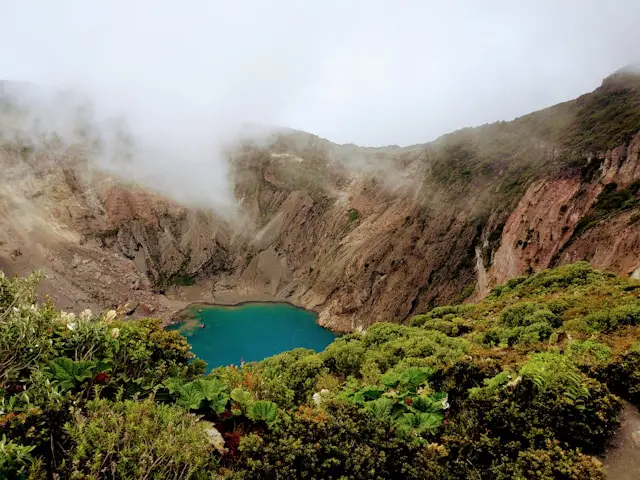Have you ever considered the impact your travels have on the environment? As more people become conscious of their environmental footprint, eco-tourism has emerged as a popular alternative to traditional travel. But what exactly is eco-tourism, and why is it important? In this blog post, we’ll explore the concept of ecotourism, its principles, benefits, and drawbacks and share some inspiring examples from around the world.
What is Eco-tourism?
Ecotourism, often referred to as sustainable tourism, is a form of travel that prioritizes the conservation of natural environments, supports local communities, and educates travellers on environmental stewardship. It aims to minimize tourism’s negative impacts while maximizing its benefits for the environment and local people.
Historical Context
Eco-tourism has its roots in the environmental movement of the 1970s and 1980s, when concerns about the ecological impact of human activities began to gain prominence. Over the years, it has evolved into a significant sector within the travel industry, attracting travellers who seek meaningful, sustainable experiences.
Ecotourism Definition and Principles
To understand eco-tourism better, let’s dive into its core principles:
- Minimizing Impact: Eco-tourism strives to reduce the environmental damage caused by tourism activities. This includes practices like reducing waste, conserving water, and protecting wildlife habitats.
- Building Environmental Awareness: Education is a key component of eco-tourism. Travelers and locals alike are encouraged to learn about conservation efforts and the importance of protecting natural resources.
- Providing Direct Financial Benefits for Conservation: Ecotourism channels funds directly into conservation projects, ensuring that tourism revenues support the preservation of ecosystems.
- Respecting Local Culture: Eco-tourism promotes cultural sensitivity and respectful interactions between tourists and local communities, helping to preserve cultural heritage.
- Supporting Human Rights and Democratic Movements: It encourages fair treatment and empowerment of local communities, ensuring they benefit from tourism activities.
Pros and Cons
Pros
- Environmental Benefits: Eco-tourism promotes the conservation of natural resources and wildlife protection, ensuring that natural habitats are preserved for future generations.
- Economic Benefits: It generates revenue for local communities, supporting sustainable development and providing jobs.
- Cultural Benefits: By respecting and preserving cultural heritage, eco-tourism fosters a sense of pride among local communities.
- Educational Benefits: Travelers gain a deeper understanding of environmental issues and learn how to contribute to conservation efforts.
Cons
- Environmental Damage: If not managed properly, eco-tourism can still harm the environment through habitat disruption and pollution.
- Cultural Exploitation: There is a risk of modifying local cultures, which can lead to the loss of cultural identity and authenticity.
- Economic Disparities: Tourism revenue may not be evenly distributed, leading to economic disparities within communities.
- Overcrowding: Popular eco-tourism destinations can suffer from over-tourism, which puts pressure on local resources and infrastructure.
Examples of Eco-tourism
1. Costa Rica

Costa Rica is renowned for its commitment to eco-tourism. With its diverse ecosystems, including rainforests, beaches, and volcanoes, Costa Rica offers a wide range of eco-friendly activities. The country has numerous eco-lodges and reserves dedicated to conservation, making it a top destination for eco-conscious travellers.
2. Maasai Mara, Kenya

The Maasai Mara in Kenya is a prime example of community-based ecotourism. The Maasai people have partnered with conservation organizations to protect their land and wildlife. Tourists can experience the rich culture of the Maasai while contributing to the conservation of this iconic African savannah.
3. Eco-lodges

Eco-lodges are accommodations designed to have minimal environmental impact. Examples include the Huilo Huilo Biological Reserve in Chile and the El Nido Resorts in the Philippines. These lodges use sustainable practices such as solar power, rainwater harvesting, and waste recycling.
Key Components of a Successful Ecotourism Experience
- Sustainable Practices: Successful eco-tourism destinations adopt eco-friendly practices, such as reducing energy consumption, recycling waste, and protecting wildlife.
- Community Involvement: Engaging and benefiting local communities is crucial. This includes providing employment opportunities, supporting local businesses, and involving locals in decision-making processes.
- Conservation Efforts: Eco-tourism revenues often support specific conservation projects, such as reforestation, wildlife rehabilitation, and marine protection.
Tips for Travelers Interested in Eco-tourism
- Choosing Eco-friendly Destinations: Research and select destinations that prioritize sustainability. Look for certifications like Green Globe or EarthCheck.
- Responsible Travel Practices: Minimize your environmental impact by reducing waste, conserving water, and respecting wildlife.
- Supporting Local Communities: Buy local products, eat at local restaurants, and participate in community-led tours to contribute to the local economy.
Conclusion
Eco-tourism offers a powerful way to explore the world while contributing to conserving natural and cultural heritage. By understanding its principles, benefits, and challenges, travellers can make informed choices that support sustainable tourism practices. From the lush rainforests of Costa Rica to the community-based initiatives in Kenya, eco-tourism provides enriching experiences that leave a positive impact.
Ready to embark on your eco-friendly adventure? Start by researching destinations that prioritize sustainability, adopt responsible travel practices, and support local communities. Your next journey can be memorable and meaningful, helping protect our planet for future generations. So pack your bags, leave only footprints, and take the first step towards becoming a conscious traveller today!

